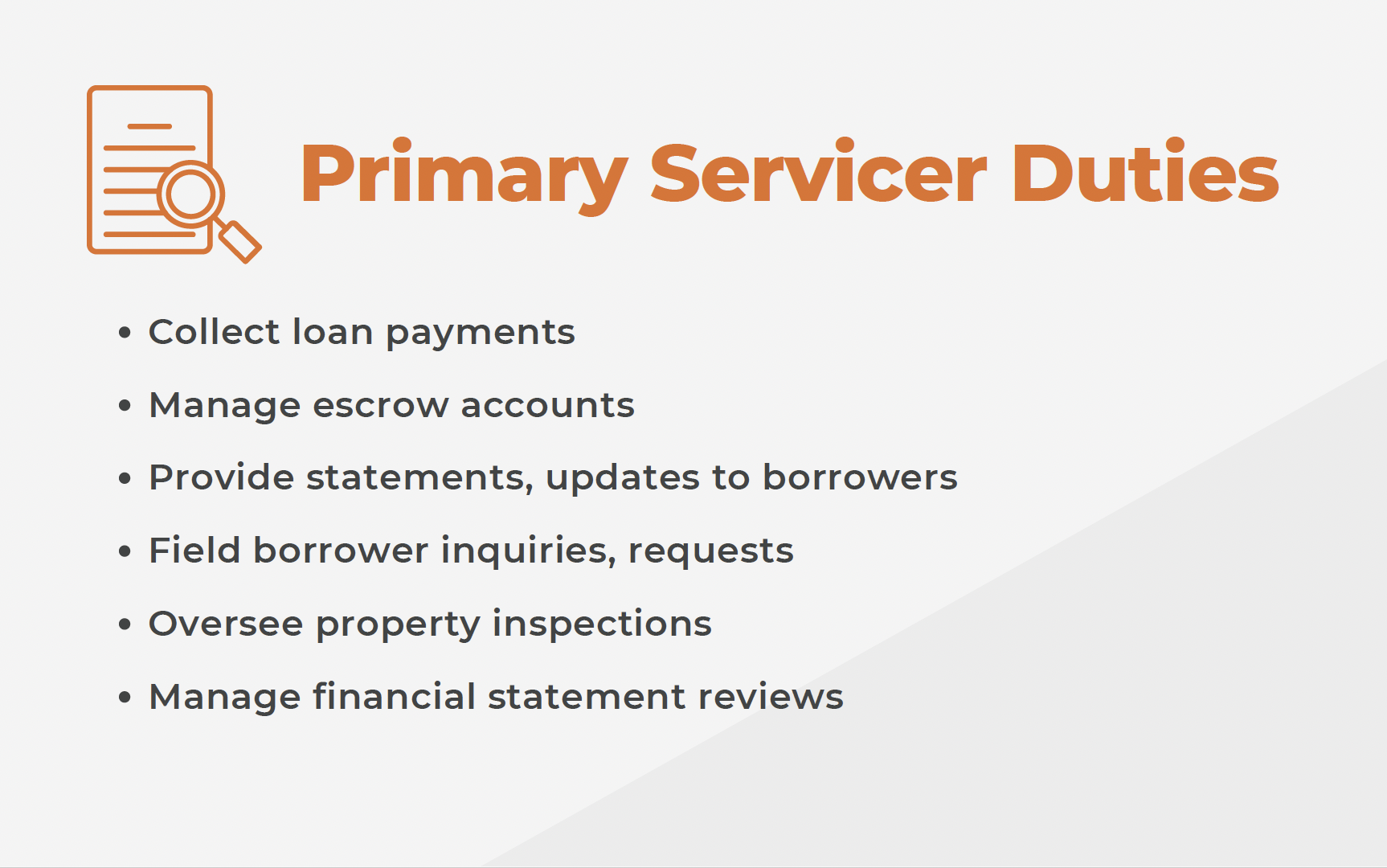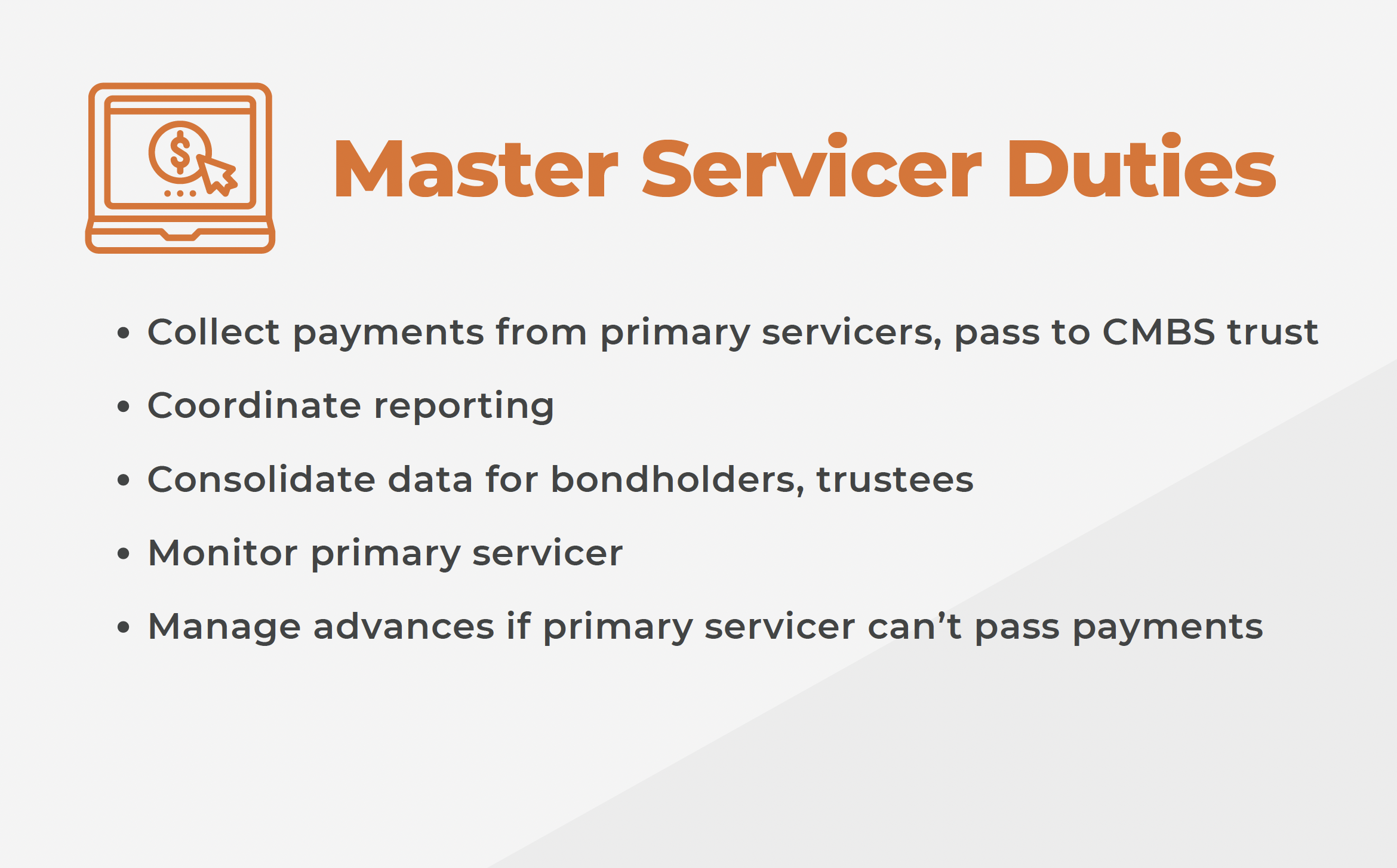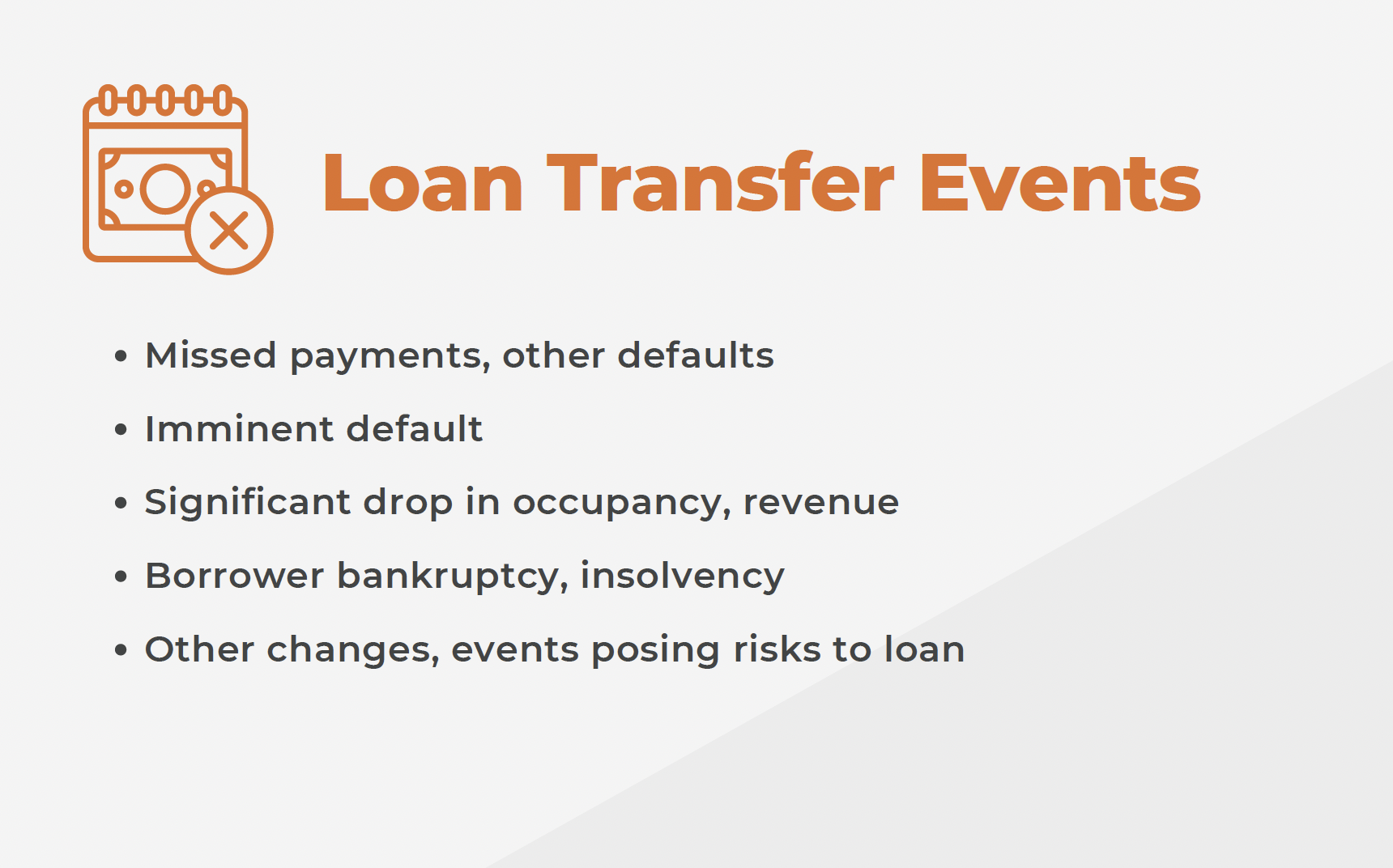The Role and Responsibilities of a Commercial Real Estate Loan Special Servicer
Commercial real estate (CRE) loans are a fundamental component of the financial system. They provide the necessary capital for businesses to purchase, construct, or enhance commercial properties. However, due to various reasons, including but not limited to, economic downturns, poor management, or market volatility, these loans may become troubled and ultimately fall into default. When such scenarios occur, the process of ‘special servicing’ becomes crucial.
Non-Performing Loans and Special Servicers
When a commercial real estate loan begins to show signs of distress or has defaulted, the special servicer steps in. Special servicers possess a significant understanding of complex real estate issues and negotiations, with the goal of maximizing recovery for the lender or security holders.
Special servicing involves the management and resolution of distressed commercial real estate loans, typically those at risk of default or already in default. Special servicers are usually tasked with the responsibility of ensuring that the non-performing loan is either brought back to a performing status or that losses are mitigated during loan liquidation.
Special Servicers vs Primary and Master Servicers
In the realm of CRE loans, particularly within the framework of Commercial Mortgage-Backed Securities (CMBS), there are different types of servicers, each with a unique set of responsibilities related to distressed assets and non-performing loans. Let’s delve into the distinct roles of primary, master, and special servicers:

Primary Servicer:
The primary servicer is responsible for the day-to-day administration of individual CRE loans. In many cases, the primary servicer is the originating lender or an entity that has purchased the servicing rights to a commercial real estate loan.
Key responsibilities of a primary servicer include:
- Collecting loan payments from borrowers.
- Managing escrow accounts for taxes, insurance, and other property-related expenses.
- Providing regular statements and updates to borrowers.
- Handling routine borrower inquiries and requests.
- Overseeing property inspections and financial statement reviews.
Master Servicer:
The master servicer oversees the primary servicers, especially in scenarios where a pool of commercial real estate loans is securitized in a CMBS. They act as an intermediary between primary servicers and the CMBS trust. In CMBS structures, the master servicer plays a critical role in ensuring that bondholders receive their expected payments. They are typically large financial institutions with robust infrastructure.
Key responsibilities of a master servicer include:
- Collecting payments from primary servicers and passing them on to the CMBS trust.
- Coordinating reporting from all primary servicers and consolidating this data for bondholders and trustees.
- Monitoring the performance and compliance of primary servicers.
- Managing advances if a primary servicer is unable to pass on the expected loan payments to the trust.
Special Servicer:
As previously mentioned, the special servicer steps in when a CRE loan becomes troubled or defaults. They specialize in managing and resolving distressed loans. Special servicers are typically separate entities from primary and master servicers. Given their unique expertise, they’re designated to handle problematic loans in CMBS agreements. Key responsibilities of a special servicer may vary based on the loan agreement’s terms and the nature of the loan’s distress. Some typical roles include:
- Evaluating distressed commercial real estate loans and deciding on the best resolution strategy, which might include loan modifications, forbearance agreements, or even foreclosure. The special servicer can restructure the loan terms, possibly adjusting interest rates, extending the loan term, or changing the payment structure. The goal is to make the terms more manageable for the borrower, enabling them to recover financially and continue to service the debt.
- Foreclosure Proceedings: If the borrower cannot meet the restructured terms or if the loan is severely distressed, the special servicer may initiate foreclosure proceedings. This involves taking legal ownership of the property and selling it to recoup as much of the outstanding loan as possible.
- Managing commercial properties that have been foreclosed upon, including ensuring the property’s upkeep, managing tenants, ensuring its occupancy, and preserving its value before potentially selling the property.
- Working closely with borrowers to find a resolution that maximizes recovery while considering the borrower’s situation.
- Providing regular updates and reports on the status of distressed loans to the CMBS trust and bondholders.
- Disposition of the commercial property: The special servicer is responsible for the sale of the property following foreclosure, typically aiming to sell the property at the highest price possible to maximize loan recovery.
Supporting the Commercial Real Estate Financing Ecosystem
In essence, while primary and master servicers handle the routine administration and oversight of commercial real estate loans, the special servicer manages situations when loans run into trouble. Each type of servicer plays a crucial role in the broader commercial real estate financing ecosystem, ensuring the smooth operation of lending, securitization, and recovery processes.
Challenges and Strategies in CRE Loan Special Servicing
Managing and resolving distressed CRE loans through special servicing can be challenging. These challenges might stem from the need to balance various interests, including those of the borrower, the lender, and other stakeholders like tenants and local communities.
Special servicers often employ a variety of strategies to maximize recovery and mitigate losses. For instance, the servicer may opt for a loan workout plan that involves modifying the terms of the loan, thereby giving the borrower a chance to catch up on payments and stabilize their financial situation.
Alternatively, they might decide to sell the distressed loan or property to a third party. This decision largely depends on market conditions and the property’s value compared to the outstanding debt.
Deed In Lieu Foreclosure Agreement
Sometimes, special servicers might consider a “deed in lieu of foreclosure” agreement. Here, the borrower willingly transfers property ownership to the lender to avoid the foreclosure process. This strategy can reduce the time and costs associated with foreclosure while offering a more controlled transition of the commercial property.
Transfer of a Commercial Real Estate Loan to a Special Servicer
The transfer of a commercial real estate (CRE) loan to a special servicer usually involves a process that’s initiated when certain predefined “transfer events” or triggers are met. Here is a step-by-step outline of how the process typically works, especially within the context of securitized CRE loans like those in a Commercial Mortgage-Backed Securities (CMBS) structure:
Defining Loan Transfer Events
Loan agreements, especially in CMBS trusts, will specify particular events or triggers that would necessitate the transfer of a loan from the primary or master servicer to a special servicer.
These triggers can include:
- Missed payments or other default events.
- Imminent default, where the borrower may be in danger of not meeting their obligations in the near future.
- A significant drop in property occupancy or revenue, making it likely that the borrower may not meet future payment obligations.
- Bankruptcy or insolvency of the borrower.
- Other major changes or events that pose a risk to the loan’s performance.
Monitoring By A Master Servicer
The master servicer is responsible for the day-to-day administration of the loan. This includes collecting payments, managing escrow accounts, and monitoring the loan’s performance. If they notice a transfer event or believe one is imminent, they will begin the process of transferring the loan to a special servicer.
Notification of A Triggering Event
Once a triggering event is identified, the master servicer will notify the necessary parties. This typically includes the borrower, the special servicer, and in the case of CMBS, the trustees and bondholders.
Transfer of Loan Documentation and Data
After the notification, all relevant documentation and data about the loan are transferred to the special servicer. This includes loan agreements, payment histories, property information, borrower correspondence, and any other relevant information.
Assumption of Control by the Special Servicer
Once the loan is transferred, the special servicer assumes all responsibilities related to that loan. They’ll review the situation, communicate with the borrower, and decide on the best course of action. This can range from restructuring the loan to initiating foreclosure proceedings on the commercial property.
Feedback and Reporting on the Non-Performing Loan
The special servicer will continuously report on the status of the distressed loan. In the case of CMBS, they will provide regular updates to trustees and bondholders, detailing the efforts being made to rectify the situation and the anticipated recovery amounts.
Resolution and Potential Transfer of the Loan
The goal of the special servicer is to resolve the issue, either by returning the commercial real estate loan to a performing status or by recovering as much of the loan amount as possible. Once the issue is resolved, and if the loan becomes performing again, it might be transferred back to the master servicer for regular administration.
The specific details of this transfer process can vary based on the terms of the loan agreement, the nature of the securitization (if applicable), and the specific protocols of the servicing companies involved. Still, the general process outlined above is typical in many commercial real estate lending scenarios.
A Final Word on Non-Performing Loan Special Servicing
Though the process can be challenging, as it often involves balancing the interests of various parties under difficult circumstances, the use of strategic measures like loan modification, loan sales, and deeds in lieu of foreclosure can lead to effective resolutions. As such, special servicing remains an essential tool for managing risk in the commercial real estate loan market.
More Information On Commercial Real Estate Loans and Distressed Assets
If you’d like more information on commercial real estate loans, our expert loan abstraction team has written an informative blog post explaining many common commercial real estate loan covenants in simple, easy-to-understand terms.
If you’d like additional information on managing distressed commercial real estate assets, our experienced lease administration team authored an insightful post on lease administration of distressed assets.
Or, if you’re looking for help with acquiring a non-performing loan or loan portfolio or managing a distressed commercial real estate asset, Realogic has decades of experience with both. Our expert, reliable consulting team can provide a wide range of services, solutions and insights to help you achieve your objectives, including NPL underwriting, detailed, accurate financial modeling and informed, experienced lease administration of distressed assets. For more information about any of our services, contact us at info@realogicinc.com or 312-782-7325.
About the Author
Mike Phelps is Realogic’s General Counsel. Mike has over 20 years of commercial real estate experience, including with financial modeling and analysis, analysis of acquisitions and dispositions, due diligence, underwriting, development and review of financial proformas and Argus/Dyna training. In his current role, he supports each of Realogic’s business lines and provides counsel on corporate, employment and compliance issues. He is also responsible for negotiation of contracts, master service agreements, software licenses and subscriptions and other intellectual property matters. Mike welcomes your comments on his post. He can be reached at mphelps@realogicinc.com